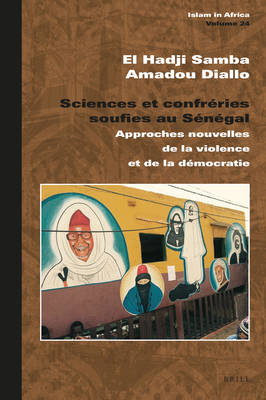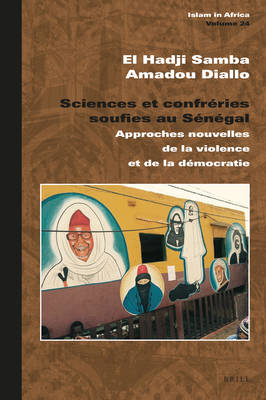
Je cadeautjes zeker op tijd in huis hebben voor de feestdagen? Kom langs in onze winkels en vind het perfecte geschenk!
- Afhalen na 1 uur in een winkel met voorraad
- Gratis thuislevering in België vanaf € 30
- Ruim aanbod met 7 miljoen producten
Je cadeautjes zeker op tijd in huis hebben voor de feestdagen? Kom langs in onze winkels en vind het perfecte geschenk!
- Afhalen na 1 uur in een winkel met voorraad
- Gratis thuislevering in België vanaf € 30
- Ruim aanbod met 7 miljoen producten
Zoeken
Omschrijving
L'auteur soutient que les confréries soufies, en s'opposant ou en bloquant les ambitions conservatrices de l'État, participent - entre autres instances sociales et institutions politiques de régulation -, à la consolidation et à l'amélioration de la démocratie et de la laïcité sénégalaises.
The author argues that Sufi orders participate in the improvement and consolidation of democracy and secularism in Senegal. Often, in opposing or blocking the conservative ambitions of the state holders, several Sufi guides support the citizens and deepen democratic values in the country.
The author argues that Sufi orders participate in the improvement and consolidation of democracy and secularism in Senegal. Often, in opposing or blocking the conservative ambitions of the state holders, several Sufi guides support the citizens and deepen democratic values in the country.
Specificaties
Betrokkenen
- Auteur(s):
- Uitgeverij:
Inhoud
- Aantal bladzijden:
- 452
- Taal:
- Frans
- Reeks:
- Reeksnummer:
- nr. 24
Eigenschappen
- Productcode (EAN):
- 9789004503205
- Verschijningsdatum:
- 15/09/2022
- Uitvoering:
- Hardcover
- Formaat:
- Genaaid
- Afmetingen:
- 155 mm x 234 mm
- Gewicht:
- 802 g

Alleen bij Standaard Boekhandel
+ 403 punten op je klantenkaart van Standaard Boekhandel
Beoordelingen
We publiceren alleen reviews die voldoen aan de voorwaarden voor reviews. Bekijk onze voorwaarden voor reviews.









